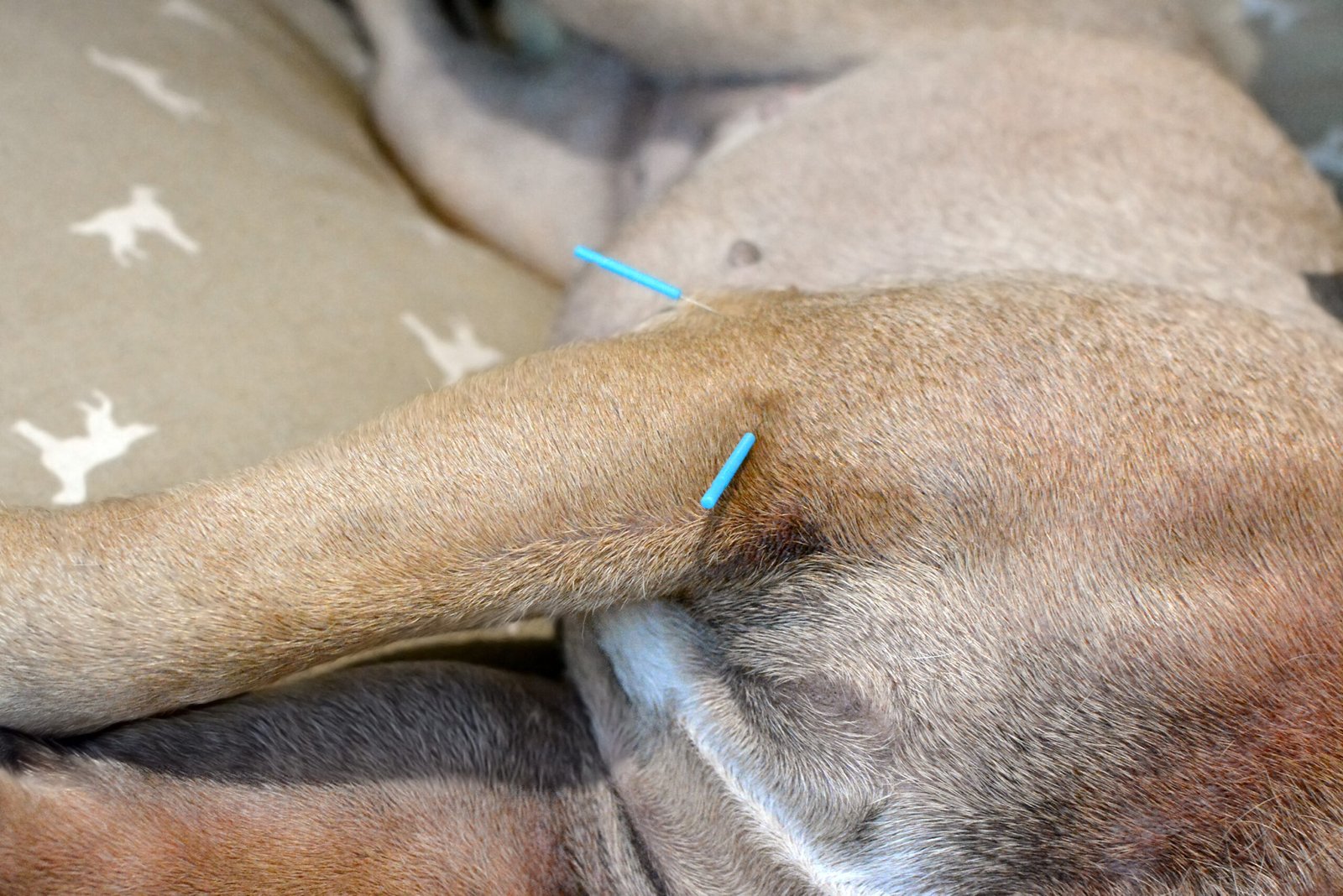Acupuncture, a practice rooted in traditional Chinese medicine, has been used for centuries to treat various ailments in humans. Today, this ancient healing technique is gaining popularity in veterinary medicine, offering a natural, holistic approach to improving the health and well-being of our canine companions. In this article, we’ll explore the benefits, potential drawbacks, and uses of acupuncture for dogs, along with tips for administering it and key takeaways for each section.
Benefits of Acupuncture for Dogs
1. Pain Relief: Acupuncture can effectively manage pain associated with arthritis, hip dysplasia, and other musculoskeletal conditions. By stimulating the release of endorphins, it helps alleviate chronic pain and improves mobility.
2. Improved Circulation: This therapy enhances blood flow, which aids in the healing process and promotes overall health.
3. Stress Reduction: Acupuncture has a calming effect on dogs, helping to reduce anxiety and stress. It can be particularly beneficial for dogs with behavioral issues or those recovering from trauma.
4. Immune System Support: Regular acupuncture sessions can boost the immune system, helping dogs fight off infections and recover more quickly from illnesses.
5. Enhanced Digestive Health: Acupuncture can help manage gastrointestinal issues such as nausea, vomiting, and diarrhea, improving your dog’s digestive health.
Key Takeaway: Acupuncture offers multiple benefits, including pain relief, improved circulation, stress reduction, immune support, and better digestive health.
Drawbacks of Acupuncture for Dogs
1. Requires Skilled Practitioner: Acupuncture must be administered by a trained and certified veterinary acupuncturist to ensure safety and effectiveness.
2. Cost: Regular acupuncture sessions can be expensive, which might be a consideration for some pet owners.
3. Variable Response: Not all dogs respond to acupuncture in the same way. While many dogs benefit significantly, some may show little to no improvement.
4. Time Commitment: Acupuncture requires multiple sessions to be effective, which can be time-consuming.
Key Takeaway: The primary drawbacks of acupuncture include the need for a skilled practitioner, cost, variable response among dogs, and the time commitment required for multiple sessions.
Uses of Acupuncture for Dogs
1. Chronic Pain Management: Ideal for dogs with arthritis, hip dysplasia, and other chronic pain conditions.
2. Post-Surgical Recovery: Helps speed up recovery and reduces pain and inflammation after surgery.
3. Neurological Disorders: Can be beneficial for dogs with neurological issues such as intervertebral disc disease (IVDD).
4. Gastrointestinal Issues: Effective in managing digestive problems and improving gut health.
5. Behavioral Problems: Helps reduce anxiety, stress, and behavioral issues.
Key Takeaway: Acupuncture can be used for chronic pain management, post-surgical recovery, neurological disorders, gastrointestinal issues, and behavioral problems.
Best Ways to Administer Acupuncture to Dogs
- Consult a Veterinary Acupuncturist: Ensure that the practitioner is certified and experienced in veterinary acupuncture.
- Initial Assessment: The acupuncturist will perform a thorough assessment to determine your dog’s specific needs and develop a treatment plan.
- Session Frequency: Initially, sessions may be recommended once or twice a week. The frequency can decrease as the dog’s condition improves.
- Monitor Progress: Keep track of your dog’s response to the treatment and report any changes to the acupuncturist.
Key Takeaway: Proper administration involves consulting a certified veterinary acupuncturist, conducting an initial assessment, maintaining regular sessions, and monitoring progress.
Comparison Table of Benefits and Drawbacks
| Benefits | Drawbacks |
|---|---|
| Pain relief | Requires skilled practitioner |
| Improved circulation | Can be expensive |
| Stress reduction | Variable response |
| Immune system support | Time commitment |
| Enhanced digestion |
Key Takeaway: Acupuncture offers significant benefits for dogs but also comes with some drawbacks that need to be considered.
Recommendations
- Choose a Certified Practitioner: Always opt for a certified veterinary acupuncturist to ensure your dog’s safety.
- Consistency is Key: Regular sessions are crucial for seeing improvements.
- Combine with Other Treatments: Acupuncture can be used alongside other treatments for a holistic approach.
- Monitor and Adjust: Keep an eye on your dog’s progress and adjust the treatment plan as needed with your acupuncturist.
Frequently Asked Questions (FAQ)
Is acupuncture safe for all dogs?
Yes, when performed by a certified practitioner, acupuncture is safe for most dogs, including those with chronic conditions.
How many sessions are needed to see results?
The number of sessions varies depending on the condition being treated. Some dogs may show improvement after a few sessions, while others may require ongoing treatment.
Are there any side effects?
Side effects are rare but can include mild soreness or lethargy after a session. These effects are usually short-lived.
Can acupuncture be used alongside conventional treatments?
Yes, acupuncture can complement conventional treatments and provide a holistic approach to your dog’s care.
Acupuncture for dogs offers a natural and effective way to manage various health issues, providing relief and improving overall well-being. Always consult with a certified veterinary acupuncturist to ensure the best care for your furry friend. This guide provides an overview of acupuncture for dogs, highlighting its benefits, drawbacks, and practical tips for pet owners. Always prioritize your pet’s health by seeking professional veterinary advice and care.
Always Consult Your Vet
Before introducing any new food, plant, remedy, or supplement to your dog, always consult with your veterinarian to ensure it is safe and appropriate for your pet’s specific health needs. This blog post is for informational purposes only and is not a substitute for professional veterinary advice.

